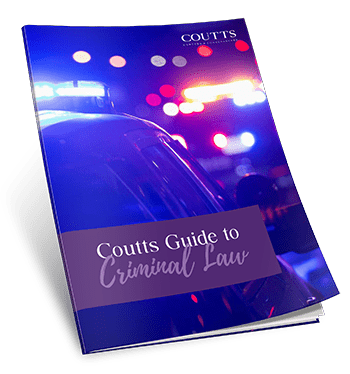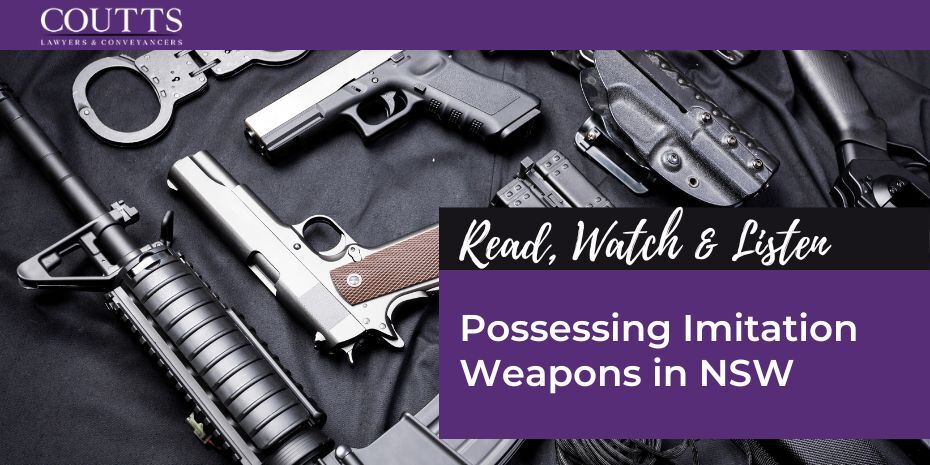We’ve Got You Covered

Luisa Gaetani
Partner
Book Your Apprehended Violence Orders Consultation Now
What is an AVO?
Apprehended Violence Orders protect a person in need of protection by restraining the offender, or alleged offender from contacting, approaching, or coming within a certain distance of the protected person and anyone they are in a domestic relationship with. An application for an Apprehended Violence Order can be made by a police officer on behalf of a person in need of protection. Alternatively, a person in need of protection above the age of 16 can also lodge an application with the local Court.
When can an AVO be ordered?
Initially, NSW Police may issue a provisional order until the matter can be heard by the Court. Once the matter is heard by the Court, an interim or final order may be made. An interim order has the same effect as a final order in that it provides protection to the person in need of protection and will remain in force until the matter is finalised. The interim AVO order will either be made final by the Court, withdrawn by the Police, or dismissed by the Court.
A final AVO will be made in circumstances where the named person either consents to the final order, or if the named person does not consent the Court determines that the AVO is necessary following a hearing. If the matter proceeds to hearing, the Court must be satisfied that:
- The person in need of protection has reasonable grounds to fear, and does fear that the named person will commit a personal violence offence against them, or that the named person will intimidate or stalk them; and
- Such conduct is sufficient to warrant the making of an order
What does an AVO cover?
There are several mandatory orders that the Court must make when granting an application for an AVO, which include:
- Prohibiting the named person from harassing, threatening, molesting, assaulting or otherwise interfering with the person in need of protection;
- Prohibiting the named person from intimidating, or engaging in conduct that may intimidate, the protected person;
- Prohibiting the named person from stalking the protected person;
- Prohibiting the named person from damaging or destroying the property of the protected person.
In addition to the mandatory orders, the Court may also include some additional orders, such as:
- Prohibiting or restricting the named person from contacting or approaching the person in need of protection;
- Prohibiting the named person from approaching or entering the home of the person in need of protection;
- Prohibiting the named person from approaching or entering the workplace, or any other place that the person in need of protection often attends;
- Prohibiting the named person from contacting the person in need of protection within 12 hours of consuming alcohol or illicit drugs.
What to do if an AVO is taken out against you?
If you are a defendant, or named person, in an application for an apprehended violence order, you have several options, including:
- Provide an undertaking to the Court that you will no longer cause the person in need of protection to fear you.
- Agree to the conditions contained within the Apprehended Violence Order, without admitting to the allegations against you.
- Agree to the conditions contained within the Apprehended Violence Order, admitting to the allegations against you.
- Proceed to a hearing and entirely defend the application for the Apprehended Violence Order so a magistrate can decide whether to make the order or dismiss the application.
Will I get a criminal record if an AVO is taken out against me??
If an apprehended violence order is made against you, you are not given a criminal record. An AVO may appear on a working with children or criminal check while it is still in force, which could have effects on employment. Also, if you breach the apprehended violence order, it is a criminal offence, and the maximum penalty is a fine of $5,500.00 and/or two years imprisonment.
What to Expect with Coutts Lawyers
Step 1: Initial Contact
Reach out to Coutts Lawyers via our website, phone, or in person. Briefly describe your matter.
Step 2: Consultation Appointment
Schedule and attend a meeting with a Coutts lawyer to discuss the specifics of your matter and desired outcomes.
Step 3: Information & Legal Advice
Share all related documents and information. Your lawyer will review everything, clarify aspects as needed, and then advise on the best action course.
Step 4: Action Plan Development
Based on the advice, an appropriate action plan will be formulated. This may involve communication, documentation processes, or further legal steps.
Step 5: Implementation
Execute the action plan, addressing a range of legal scenarios as necessary.
Step 6: Resolution & Closure
Navigate towards a resolution, with the path determined by the nature of the matter. Your Lawyer will outline any final actions or considerations.
Book Your Apprehended Violence Orders Consultation Now
Introducing Luisa
Your Compassionate Lawyer
Meet Luisa, a Partner at Coutts Lawyers & Conveyancers, and an Accredited Family Law specialist. Luisa is the head of our esteemed Family Law & Criminal Team. Boasting over a decade of expertise, Luisa blends sensitivity with practicality, forging deep connections and trust with her clients. Her reputation as a foremost authority in Criminal and Family law is well-deserved.


Connect with Luisa Today
Multi Award-Winning
Law Firm

Apprehended Violence Orders FAQ’s
Contesting an AVO involves appearing before the court and choosing to defend against the application for the AVO. Consulting with a legal team, like the one at Coutts, can provide the necessary guidance and representation required to navigate through the legal procedures and present a robust defence. The onus of proof to be successful in an Application for an AVO is on the Applicant to prove that, on the balance of probabilities, the AVO is required.
Yes, an Apprehended Violence Order can be modified or revoked, but this typically requires a court appearance and the presentation of substantial evidence to justify the alteration or revocation. The experienced Criminal Lawyer at Coutts can guide and represent individuals through this process, ensuring proper legal procedures are followed.
Once an AVO is issued, immediate consultation with a legal professional is crucial to understand the implications and explore available options, such as contesting the order, agreeing to the conditions, or providing an undertaking to the court. Legal representation, and the Lawyers at Coutts, can assist in defining the most suitable approach and offer representation in court.
An AVO can potentially impact child custody and visitation rights, as it may impose restrictions on approaching or contacting the protected person and any children involved. Expert legal advice is essential to navigate such complexities and to ensure that the parties adhere to any restrictions contained in the AVO. Breach of an AVO is considered a serious criminal offence and carries significant penalties.
A Provisional AVO is issued by the NSW Police and remains in effect until the court hearing. An Interim AVO may be granted by the court until the final decision is made. It offers the same protection as a Final AVO. A Final AVO is issued by the court either after the named person consents to it or post a hearing, based on the court’s determination of necessity.
Download your FREE Criminal Law Guide!



